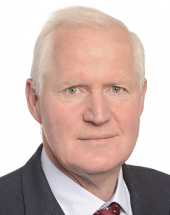
Choisissez la langue de votre document :
- bg - български
- es - español
- cs - čeština
- da - dansk
- de - Deutsch
- et - eesti keel
- el - ελληνικά
- en - English
- fr - français
- ga - Gaeilge
- hr - hrvatski
- it - italiano
- lv - latviešu valoda
- lt - lietuvių kalba
- hu - magyar
- mt - Malti
- nl - Nederlands
- pl - polski
- pt - português
- ro - română
- sk - slovenčina
- sl - slovenščina
- fi - suomi
- sv - svenska
|
| Procédure : 2019/2870(RSP) |
| Cycles relatifs aux documents : | ||||||
Textes déposés : B9-0069/2020 | Débats : | Votes : PV 30/01/2020 - 5.10CRE 30/01/2020 - 5.10 Explications de votes | Textes adoptés : | |||
| Compte rendu in extenso des débats |
|
|
| Jeudi 30 janvier 2020 - Bruxelles |
|
| Dernière mise à jour: 28 avril 2020 | Avis juridique - Politique de confidentialité |




















